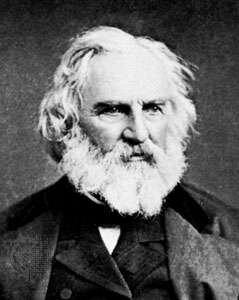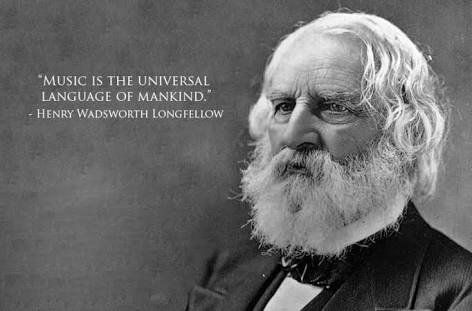Daybreak by Henry Wadsworth Longfellow:
The Poem Daybreak Text
A wind came up out of the sea,
And said, “O mists, make room for me.”
It hailed the ships, and cried, “Sail on,
Ye mariners, the night is gone.”
And hurried landward far away,
Crying, “Awake! it is the day.”
It said unto the forest, “Shout!
Hang all your leafy banners out!”
It touched the wood-bird’s folded wing,
And said, “O bird, awake and sing.”
And o’er the farms, “O chanticleer,
Your clarion blow; the day is near.”
It whispered to the fields of corn,
“Bow down, and hail the coming morn.”
It shouted through the belfry-tower,
“Awake, O bell! proclaim the hour.”
It crossed the churchyard with a sigh,
And said, “Not yet! in quiet lie.”
Review of Daybreak
A Poem is more what a reader comprehends than what a writer actually writes. While I was reading and analyzing this piece by Henry Wadsworth Longfellow, I came to a conclusion regarding the basis of this poem.

Some of you might agree, some of you might not. In either way, let us know what you think, in the comment section. Longfellow, in this poem, writes about a gust of Wind who, early in the morning, wakes everyone up.
It was born of the sea; it rose and claimed it’s placed amidst the mist. It went on and called to the mariners to wake up, hailing the arrival of dawn.
Daybreak by Henry Wadsworth Longfellow
After it was done with the waters, the Wind rushed towards the land, proclaiming the beginning of a brand new day. It woke the birds up, urging them to sing. It, next, turned to the forest. It woke up, one by one, the land, the waters, the birds and the trees. It blew over the farms, whispering to the corn fields.
The wind shouted through the belfry tower and awoke the bell to proclaim the hour. Although the Wind touched one and all, announcing the arrival of another day, it stopped when it reached the Church. The day had not begun for it. Not yet.

Henry Wadsworth Longfellow could have implied a number of things. However, I believe, he had in mind the atrocities of the Church. At the time when he wrote this, the Church was in a miserable state.
In many cases, it’s policies were torturous. We find many poets and writers, in and around this time, had written articles against the Church- condemning the Church.
This can potentially be Longfellow’s implication: he meant to say that God, who was supposed to be the resident of these holy buildings, was asleep. He was blind to the sufferings of his children. His day had not begun. Not yet.
More Info On- A Nameless Grave by Henry-Wadsworth Longfellow, Snow Flakes, The Rainy Day, Changed, Evangeline the tale of an Acadie, Aftermath, Daybreak, Daylight & moonlight, The book and the Wave
